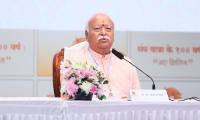Foreign Secretary Shivshankar Menon arrived in Beijing on Sunday to attend a meeting of G-8 'outreach countries', becoming the first top Indian diplomat to visit China since the outbreak of the Tibet unrest.
At the two-day meeting from Monday, the countries would discuss their approach at the upcoming annual summit of leaders of G-8 grouping in Japan in July.
India, along with China, Brazil, Mexico and South Africa, is a member of five 'outreach countries' of the G-8--the world's richest and most industrialised nations.
The G-8, comprising Germany, the United States, Britain, France, Japan, Italy, Canada and Russia will meet in Japan's northern island of Hokkaido Tayako. The G-5 is invited when the world's richest nations meet.
The G-5 meeting in Bejing is a multilateral consultation exercise on economic and trade issues and climate change, among others, that major developing nations wish to take up with G-8, official sources said.
Mexico had played host to the previous meeting of 'outreach countries'.
Suggestions have been made to expand the G-8 to embrace 'major threshold nations' as full members but the previous meeting in Germany had skipped the issue, with several members insisting on preserving the exclusivity of the rich nations' club.
Japan would assume the G-8 presidency for the fifth time at the coming summit.
During his stay, Menon is expected to meet Chinese officials and discuss the whole gamut of bilateral, regional and global issues.
Menon's visit also coincides with the successful and smooth Beijing Olympic torch relay in India, after it was marred by protests from Tibetans and human rights activists in London, Paris and San Francisco.
China may make use of the opportunity to thank India for it. The Foreign Ministry has already appreciated the great efforts by the Indian government for the torch's smooth run.
"China expresses its thanks for the warm support and participation of the Indian people and the great efforts by the Indian side," the Foreign Ministry spokesperson's office told PTI on Friday, a day after the relay passed off under a massive security cover in New Delhi.
The visit is the first by any top Indian diplomat since the eruption of the most violent anti-China protests in Tibetan capital on March 14, which spread to nearby provinces and reverberated worldwide.








